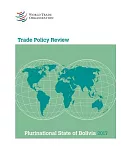Capital flows in the form of sovereign debt increased rapidly throughout the Middle East and the Balkans during the peak of nineteenth century globalisation. This was punctuated by defaults
on foreign obligations in Egypt (1876), the Ottoman Empire (1876), Greece (1893) and Serbia (1895). In all four cases, establishing international financial control organisations (IFCs), which
were assigned to collect tax revenues on behalf of their creditors, became the dominant form of dealing with defaults.
This book provides a history of sovereign debt, defaults and international financial control in the Middle East and the Balkans between 1870 and 1914. The book documents the history of IFCs
and highlights that their immediate impact was a partial loss of political and fiscal sovereignty. In discussing the question of how creditors enforced sovereign debt contracts, it underlines
the links between evolution of institutions governing sovereign debt and creditors’ response to defaults in the region. The book proposes a political economy framework to interpret the impact
of IFCs on credibility in the defaulting states of the region, and uses a comparative perspective to analyses the impact of international financial control on fiscal capacity.





















